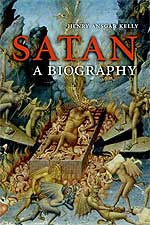I have been working on this post for a week. Actually, I haven’t really been working on it for a week; this post has been sitting as a draft in WordPress as I have been avoiding it in light of the tragic events in my friend’s life. On the one hand, talking about lament is appropriate is view of such a horrific tragedy. On the other hand, more than anything else, I don’t want to sound trite. Job’s (so-called) friends did fine as long as they kept their mouths shut — it’s once they opened them that things went sideways! In my mind, this recent tragedy underscores the need for the church to embrace lament fully as ancient Israel did.
I have been discussing lament psalms in my psalms course over the last few classes and was struck once again of the importance of lament for the life of faith. Of all the different types of psalms in the Psalter, laments occur most frequently. While some of the details of their form and setting in life are elusive (at least to scholars), it is pretty easy to identify lament psalms by their tone, which is one of sorrow, complaint, disorientation, and suffering. Take the following examples:
Be gracious to me, O Lord, for I am languishing;
O Lord, heal me, for my bones are shaking with terror.
My soul also is struck with terror,
while you, O Lord—how long? (Ps 6:2-3)My God, my God, why have you forsaken me?
Why are you so far from helping me, from the words of my groaning?
…
But I am a worm, and not human;
scorned by others, and despised by the people.
All who see me mock at me;
they make mouths at me, they shake their heads (Ps 22:1, 6-7).Hear my prayer, O Lord,
and give ear to my cry;
do not hold your peace at my tears.
For I am your passing guest,
an alien, like all my forebears.
Turn your gaze away from me,
that I may smile again,
before I depart and am no more (Ps 39:11-12).Save me, O God,
for the waters have come up to my neck.
I sink in deep mire,
where there is no foothold;
I have come into deep waters,
and the flood sweeps over me.
I am weary with my crying;
my throat is parched.
My eyes grow dim
with waiting for my God (Ps 69:1-3).You [i.e., Yahweh] have put me in the depths of the Pit,
in the regions dark and deep.
Your wrath lies heavy upon me,
and you overwhelm me with all your waves.
You have caused my companions to shun me;
you have made me a thing of horror to them.
I am shut in so that I cannot escape;
my eye grows dim through sorrow.
Every day I call on you, O Lord;
I spread out my hands to you.
Do you work wonders for the dead?
Do the shades rise up to praise you?
…
Your wrath has swept over me;
your terrors have destroyed me.
All day long they surround me like a flood;
they have completely engulfed me.
You have taken my companions and loved ones from me;
the darkness is my closest friend (Ps 88:6-10, 16-18).
Complaining in Faith to God
Many Christians don’t know how to handle tragedy. Consequently, they don’t know what to do with the lament psalms in the Bible. They think that “complaining in faith” to God is a contradiction. “Christians aren’t supposed to complain!” “We are to ‘rejoice always’ aren’t we?” But when we come to the book of Psalms we find it filled with complaints — and not just complaints about the psalmist’s circumstances, but also complaints directed towards God, challenging God’s perceived inaction (“How long, O Lord?”) and sometimes challenging God himself (“You have caused…”; see Ps 44:9; 60:3; 90:15). Roland Murphy has asked whether “we have lost the art of complaining in faith to God in favor of a stoic concept of what obedience or resignation to the divine will really means” (“The Faith of the Psalmist,” Interpretation 34 [1980], 236).
Rather than understanding complaint and lament psalms as expressions of doubt or unbelief, it is more appropriate to see them as manifestations of a deep faith. No matter how virulent the psalmist gets — at least the psalmist knew where to direct his complaints! He or she had the inward conviction that God was there. There was no question in the psalmist’s mind that God is there and that he will listen to the prayer and perhaps change his or her circumstances for the better. Lament psalms are not resigned lamentation; they do more than just whine about current hardships. They are fundamentally appeals or petitions to God to do something. What characterizes these psalms with few exceptions is the confidence that the situation can be changed if the LORD wills to intervene.
The Costly Loss of Lament
Walter Brueggemann broached this very subject (and I stole part of the title of his essay for this post!). In his article, “The Costly Loss of Lament” (JSOT 36 [1986] 57-71), he explores the theological significance of lament psalms. In particular, he explores the question of “what happens when appreciation of the lament as a form of speech and faith is lost, as I think it is largely lost in contemporary usage?” (p. 59) His answer to his question is twofold. First, when lament is lost, there is also a loss of genuine covenant interaction. Brueggemann argues that when the second party to the covenant (i.e., the psalmist/petitioner) has become voiceless or has a voice that is only permitted to praise, then there is no real covenant relationship. God does not want only “yes men and women.” He wants people who are honest and real in their relationship with him. “Since such a celebrative, consenting silence does not square with reality, covenant minus lament is finally a practice of denial, cover-up, and pretense, which sanctions social control” (p. 60). I might add that such a situation only serves to reinforce the status quo and legitimates a view of God that doesn’t square with the God of the Old Testament/Hebrew Bible.
A second loss caused by the loss of lament, according to Brueggemann, is “the stifling of the question of theodicy” (p. 61). What he means by this is not theoretical questions of God and evil, but the capacity to raise legitimate questions of justice with God. I think here of Psalm 89 where in the first half of the psalm the psalmist rehearses and celebrates God’s promises to David (vv. 1-37), only to throw God’s promises in his face in the second half (vv. 38-51):
But now you have spurned and rejected him;
you are full of wrath against your anointed.
You have renounced the covenant with your servant;
you have defiled his crown in the dust (Ps 89:38-39).
The psalmist is raising a justice question related to God’s character. If he promised that, then why is this happening? In this sense lament articulates a formal complaint against God (see the book of Job as an extended lawsuit against God). Such articulation ensures that such questions of justice are not swept under the carpet. Like Ecclesiastes, laments recognize that the world is not as it should be — it is hebel — it is not right.
If we lose the ability or the right to lament, to complain to God, then we lose a vital component of our relationship with God. And when it comes right down to it, God knows our hearts, so why not be honest with God at all times? We should feel free to speak freely to God when we are walking through the darkest valley and when we feel like we could praise him forever.
Lament as One Stage in a Journey
Finally, while a few lament psalms end on a note of utter despair (see Pss 38; 39; 89; 143; and in particular Ps 88), most give way to hope. The distress the psalmist is experiencing is very real, but it is not final in the psalmist’s eyes. Parallel to the structure of the Psalter with its move from lament to praise, lament should be seen as only one part of the journey. Praise is the ultimate goal. “Weeping may linger for the night, but joy comes with the morning” (Ps 30:5). That being said, we must embrace the night. We must embrace lament — and we must allow others who are walking through the darkest valley to embrace lament as well. Let us not be like Job’s friends and quote platitudes and Bible verses when we should be remaining silent and walking along beside our friend in silent prayer.


 While the
While the 